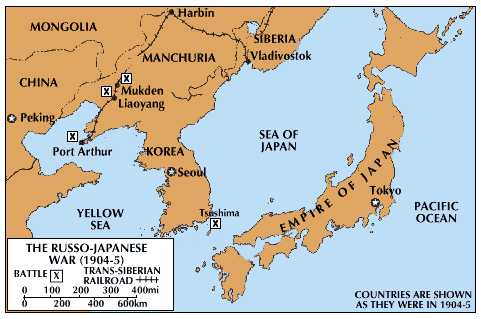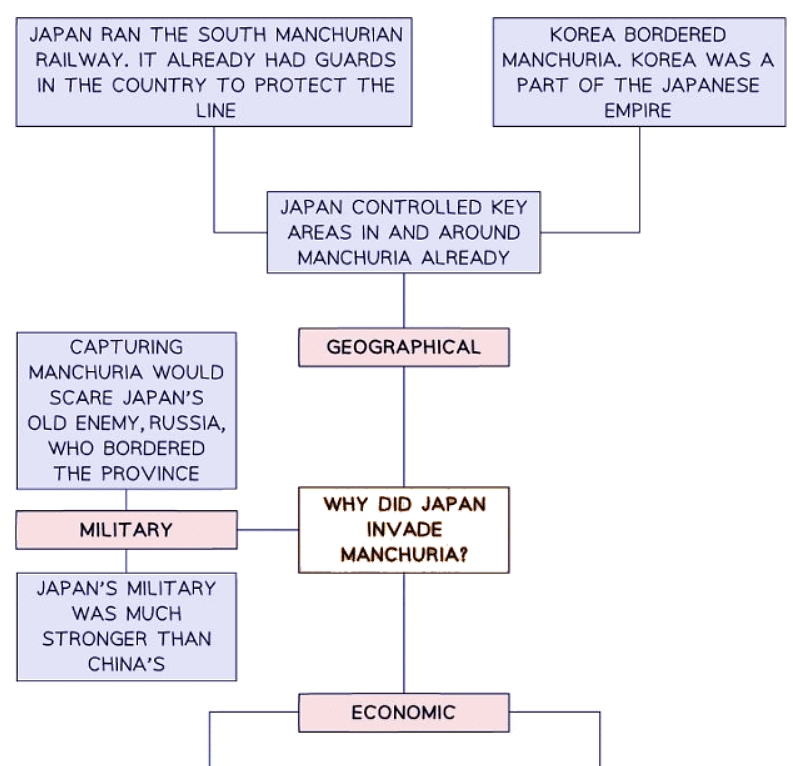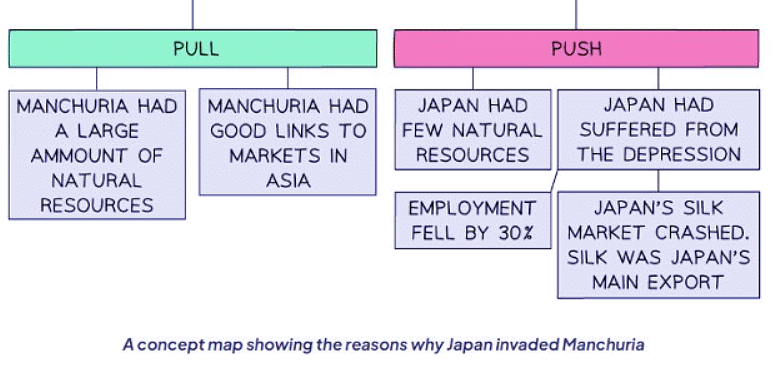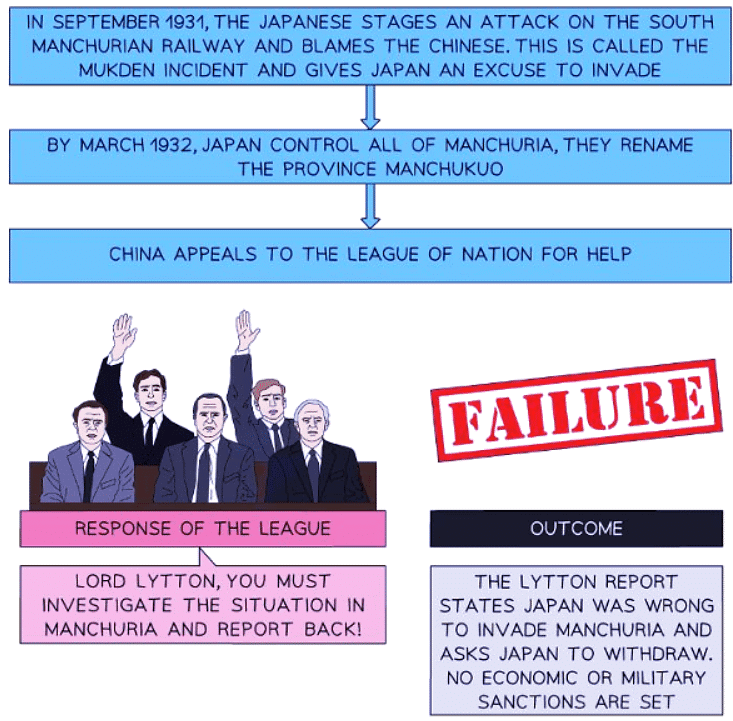Class 10 Exam > Class 10 Notes > History for GCSE/IGCSE > The League of Nations & the Manchurian Crisis
The League of Nations & the Manchurian Crisis | History for GCSE/IGCSE - Class 10 PDF Download
Causes of the Manchurian Crisis

- Manchuria, a Chinese province, shared a border with Korea, controlled by Japan since 1905, and was primarily known for its agricultural nature.
- In March 1932, Japan launched an invasion, gaining full control over Manchuria.


Events of the Manchurian Crisis


Consequences of the Manchurian Crisis
- The League of Nations appeared weakened as it responded too slowly to the crisis, considering the Lytton Report only in February 1933, 18 months after Japan's invasion of Manchuria. This delayed reaction was inadequate for addressing a crisis of such magnitude.
- Britain and France hesitated to confront Japan due to various reasons: Japan's status as a permanent League member with equal veto power, the potential impact on their imperial trade in the Far East, and the existence of their colonies in that region.
- The absence of key countries as League members, particularly the United States, which possessed the military strength to challenge Japan and was a vital trading partner for Japan, weakened the League's ability to enforce its decisions.
- The Soviet Union opposed Japanese expansion closer to its territory and was willing to use force to prevent such incursions, indicating a fragmented international response to Japan's aggression.
- The League’s lack of decisive action in the Manchurian Crisis set a precedent for further aggressive actions by other nations like Germany and Italy, signaling to Hitler and Mussolini that the League would not impede their territorial ambitions.
The World Disarmament Conference, 1932
- During the Manchuria Crisis, the League of Nations hosted the World Disarmament Conference.
- The conference took place in Geneva, Switzerland.
- It ran from 1932 to 1934.
- The Manchuria Crisis impacted the success of the conference.
- It highlighted the League's inability to counter countries with significant military power, such as Japan.
- This failure encouraged nations to adopt militaristic policies.
- It highlighted the League's inability to counter countries with significant military power, such as Japan.
- The World Disarmament Conference concluded unsuccessfully in 1934.
- Politicians from the Weimar Republic challenged other nations to reduce their armaments to Germany's level.
- France opposed Germany's proposal.
- Politicians from the Weimar Republic challenged other nations to reduce their armaments to Germany's level.
- Adolf Hitler became Germany's leader in 1933.
- He pledged not to rearm Germany if all nations dismantled their weapons within five years.
- However, Hitler was already secretly rearming Germany.
- France, Czechoslovakia, and Poland, fearing for their security due to their proximity to Germany, rejected Hitler's proposal.
- Hitler used this rejection as a pretext to withdraw from the League of Nations in November 1933.
- He pledged not to rearm Germany if all nations dismantled their weapons within five years.
Question for The League of Nations & the Manchurian CrisisTry yourself: What was one consequence of the League of Nations' slow response to the Manchurian Crisis?View Solution
Why was the Failure of the World Disarmament Conference Important?
- The League of Nations was inactive for a significant period.
- It took ten years for the League to gather world leaders to discuss disarmament.
- During this time, more countries adopted aggressive policies.
- Japan and Germany eventually withdrew from the League.
- Militarism and rearmament began in many countries.
The document The League of Nations & the Manchurian Crisis | History for GCSE/IGCSE - Class 10 is a part of the Class 10 Course History for GCSE/IGCSE.
All you need of Class 10 at this link: Class 10
|
81 videos|88 docs|18 tests
|
FAQs on The League of Nations & the Manchurian Crisis - History for GCSE/IGCSE - Class 10
| 1. What were the causes of the Manchurian Crisis? |  |
Ans. The causes of the Manchurian Crisis included Japanese expansionism, economic interests in Manchuria, and political instability in China.
| 2. What were the events of the Manchurian Crisis? |  |
Ans. The events of the Manchurian Crisis involved the Mukden Incident, where Japanese forces staged a false flag attack on a railway in Manchuria, followed by the Japanese invasion and occupation of the region.
| 3. How did the World Disarmament Conference in 1932 relate to the Manchurian Crisis? |  |
Ans. The World Disarmament Conference in 1932 failed to address the escalating tensions in East Asia, contributing to the League of Nations' inability to effectively respond to the Manchurian Crisis.
| 4. How did the League of Nations handle the Manchurian Crisis? |  |
Ans. The League of Nations condemned Japan for its actions in Manchuria and called for a peaceful resolution, but ultimately failed to prevent Japan from annexing the region.
| 5. What was the significance of the Manchurian Crisis for international relations at the time? |  |
Ans. The Manchurian Crisis highlighted the weaknesses of the League of Nations and the inability of the international community to prevent acts of aggression, foreshadowing the larger conflicts that would erupt in the following decade.
Related Searches















